Well, here goes… my first blog post as the new kid on the Wicked Writers' block.
[caption id="attachment_1992" align="alignright" width="124" caption="Potting? Who said Potting?"]
 [/caption]
[/caption]To plot or not to plot. My post will take a cursory look at the issue of whether a writer should have a good idea of their destination, and set out with a route map in hand or whether they should set out as an explorer, with merely the “idea” of the direction that their artistic travels might take.
Do you pooh-pooh the notion of sitting down and planning, in detail, how your story will unfold, preferring to bow to the elevated status of literary prose? Or do you scratch your head (carefully avoiding splinters) and trace out the necessary plot turns and twists and the character traits to be observed on the journey?
[caption id="attachment_1993" align="alignleft" width="120" caption="That's better - I said Plotting"]
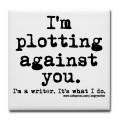 [/caption]
[/caption]If you’re a reader, do you enjoy a ramble through the machinations of your favourite author’s literary musings? Or do you pick up the books of that author knowing that the journey they take you on will, in labyrinthine style, guide you through thrills and spills, holding your hand, knowing, with confidence, that the author will reveal to you a new and exciting destination?
James Scott Bell writes in his book Plot and Structure that “Some writers, critics, and other assorted literati sniff at plotting as a tool of craft. …[it is] something decent people don’t do.”
Certainly, we can assume that an extended synopsis of a proposed novel – as a detailed writer’s “road map” – restricts the scope for characters and events to evolve in exciting and surprising directions. Such restrictions reduce the scope to offer readers new insights into the characters’/writer’s world. And given such restrictions, perhaps those other writers, critics and assorted literati have a point. If a writer plots to the nth degree, then scope for the artist’s “art” is severely limited and writing becomes recipe-driven. How many times have we seen a new writer’s break-through success followed by formulaic mediocrity?
[caption id="attachment_1997" align="alignright" width="87" caption="James Scott Bell"]
 [/caption]
[/caption]If, however, a writer disregards the elements of plot that can be traced back to the Greek philosophers of old, they also disregard the nature of the audience experience and risk loosing their readers’ engagement through a succession of wanderings into literary superlatives. How many times have we picked up a book on the recommendation that it has been the receiver of some major literary award, only to find the prose leaves you distinctly disengaged with any conception of an underlying story, wondering where on earth the book is taking you and… should you put the coffee on and go do something else, something more entertaining?
As Robert McKee in his work Story says, “As important as language is, however, it’s only the surface by which we capture the reader to lead him to the inner life of the story. Language is a tool for self-expression and must never become a decorative end of its own.”
[caption id="attachment_1998" align="alignleft" width="130" caption="Robert McKee"]
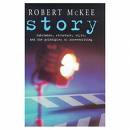 [/caption]
[/caption]My own view is that there is a time and a place for plotting and non-plotting.
I believe it is necessary that the author, as an artist, should understand two necessary but conflicting responsibilities in realizing their written work. First, there is the responsibility to apply their word craft as an artform. Call this the desire to pen our word pictures with as much concentration on the creativity with which we can manipulate language – even to the point of reaching the “decorative end”. Secondly, there is the responsibility to retain a connection with the expectations of the audience.
So, with my apologies to the great Bard himself, to plot or not to plot – that is the question: whether 'tis nobler in the mind to suffer the slings and arrows of outrageous fortune and bow to the mass market desire for good quality commercial fiction, or to take arms against a sea of expectation… And, by opposing, challenge the norm and deliver the true art in words?
[caption id="attachment_2002" align="alignright" width="114" caption="To plot or not to plot..."]
 [/caption]
[/caption]For the new author, learning the craft of writing, I would advocate that it is easier to bend to expectations. There is time enough to challenge the norm when you have gained the strength of having mastered your craft. It also depends on whether or not you might be writing in order to earn a living from the sale of your books.
And, before the obvious question, having quoted from two books on the subject of story and plot structure, can I recommend these works?
In the words of a dear and departed relative, inscribing a note in a book he presented to me before I joined my first ship, in a naval career started so many moons ago I prefer to forget – “A good book will not teach you anything, but you can learn a lot from it!”


 #6 - In the Middle of Downward Dog: Yes, I know you're supposed to clear your thoughts while doing yoga, but I can only do that for maybe two minutes at a time. It does help clear my mind of the insignificant crap quite well. So if I'm distracted and can't work through a scene, by the time I’ve stretched for twenty minutes, I’ve usually got it all figured out.
#6 - In the Middle of Downward Dog: Yes, I know you're supposed to clear your thoughts while doing yoga, but I can only do that for maybe two minutes at a time. It does help clear my mind of the insignificant crap quite well. So if I'm distracted and can't work through a scene, by the time I’ve stretched for twenty minutes, I’ve usually got it all figured out.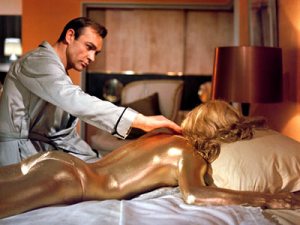











 [/caption]
[/caption]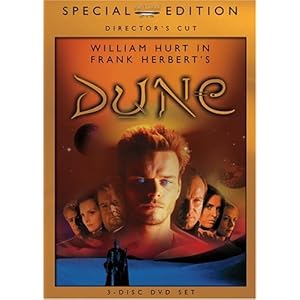 I finished reading
I finished reading  Seattle. One minute you're drinking a vanilla breve, the next, some creepy old dude is breathing on you, turning you into a zombie. And that's just for starters. Now, the recently deceased Amanda Feral is trying to make her way through Seattle's undead scene with style (mortuary-grade makeup, six-inch stilettos, Balenciaga handbag on sale) while satisfying her craving for human flesh (Don't judge. And no, not like chicken.) and decent vodkatinis.
Seattle. One minute you're drinking a vanilla breve, the next, some creepy old dude is breathing on you, turning you into a zombie. And that's just for starters. Now, the recently deceased Amanda Feral is trying to make her way through Seattle's undead scene with style (mortuary-grade makeup, six-inch stilettos, Balenciaga handbag on sale) while satisfying her craving for human flesh (Don't judge. And no, not like chicken.) and decent vodkatinis.
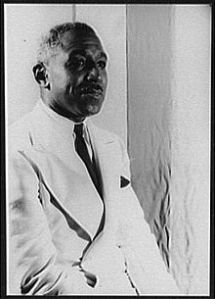








 DARK END OF SPECTRUM will make you think twice before turning on your cell phone or PDA! DARK END OF THE SPECTRUM is a frighteningly plausible, headline ripping tale of the real threats that loom in cyberspace based on the author's years of research into the hacker culture.
DARK END OF SPECTRUM will make you think twice before turning on your cell phone or PDA! DARK END OF THE SPECTRUM is a frighteningly plausible, headline ripping tale of the real threats that loom in cyberspace based on the author's years of research into the hacker culture. 

